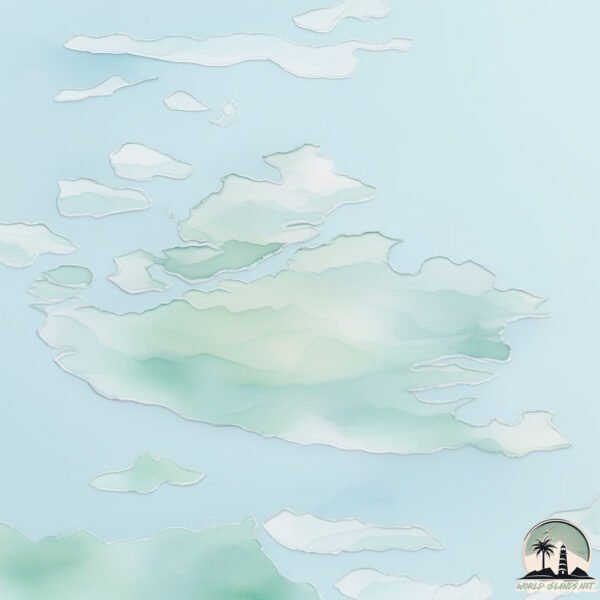Tunungayualok

Welcome to Tunungayualok, a Continental island in the Labrador Sea, part of the majestic Atlantic Ocean. This guide offers a comprehensive overview of what makes Tunungayualok unique – from its geography and climate to its population, infrastructure, and beyond. Dive into the details:
- Geography and Size: Explore the island’s size and location.
- Climate and Weather: Weather patterns and temperature.
- Topography and Nature: Uncover the natural wonders of the island.
- Infrastructure and Travelling: Insights on reaching, staying, and making the most of your visit.
- News and Headlines: Latest News.
Geography and size of Tunungayualok
Size: 186.7 km²
Coastline: 173.8 km
Ocean: Atlantic Ocean
Sea: Labrador Sea
Continent: North America
Tunungayualok is a Large Island spanning 187 km² with a coastline of 174 km.
Archipel: –
Tectonic Plate: North America – Covers North America and parts of the Atlantic and Arctic Oceans, characterized by diverse geological features and varying levels of seismic activity.
The geographic heart of the island is pinpointed at these coordinates:
Latitude: 56.08124004 / Longitude: -61.09095382
Climate and weather of Tunungayualok
Climate Zone: Continental
Climate Details: Subarctic Climate
Temperature: Cold Summer
Climate Characteristics: Characterized by long, extremely cold winters and short, cool summers, often found in northern latitudes of North America and Eurasia.
Topography and nature of Tunungayualok
Timezone: UTC-04:00
Timezone places: America/La_Paz
Max. Elevation: 248 m
Mean Elevation: 85 m
Vegetation: Herbaceous Cover
Tree Coverage: 29%
The mean elevation is 85 m. The highest elevation on the island reaches approximately 248 meters above sea level. The island is characterized by Hills: Gently sloping landforms with rounded tops, having a maximum elevation between 200 and 500 meters. Hills contribute to a varied landscape on islands.
Dominating Vegetation: Herbaceous Cover
Comprising mainly of grasses, herbs, and ferns, these areas are common in prairies, meadows, and savannas, and can vary widely in species composition. Tunungayualok has a tree cover of 29 %.
Vegetation: 9 vegetation zones – Very Highly Diverse Island
Islands in this range are ecological powerhouses, showcasing a wide array of vegetation zones. Each zone, from lush rainforests to arid scrublands, coastal mangroves to mountainous regions, contributes to a complex and interdependent ecosystem. These islands are often hotspots of biodiversity, supporting numerous species and intricate ecological processes.
Infrastructure and Travelling to Tunungayualok
Does the island have a public airport? no.
There is no public and scheduled airport on Tunungayualok. The nearest airport is Natuashish Airport, located 13 km away.
Does the island have a major port? no.
There are no major ports on Tunungayualok. The closest major port is GOOSE BAY, approximately 303 km away.
The mean population of Tunungayualok is 0 per km². Tunungayualok is Uninhabited. The island belongs to Canada.
The name of the island resonates across different cultures and languages. Here is how it is known around the world: Arabic: لبرادور; German: Labrador; Spanish: Labrador; French: Labrador; Portuguese: Labrador; Russian: Лабрадор; Chinese: 拉布拉多
Continuing your journey, Tuktuinak is the next notable island, situated merely km away.
"The Giant Among the Tiny: Paul’s Island Adventure"


Canada is classified as Developed region: G7: Group of Seven – Major advanced economies, including Canada, France, Germany, Italy, Japan, the United Kingdom, and the United States. The level of income is High income: OECD.
News – Latest Updates and Headlines from Tunungayualok
Stay informed with the most recent news and important headlines from Tunungayualok. Here’s a roundup of the latest developments.
Please note: The data used here has been primarily extracted from satellite readings. Deviations from exact values may occur, particularly regarding the height of elevations and population density. Land area and coastline measurements refer to average values at mean high tide.
